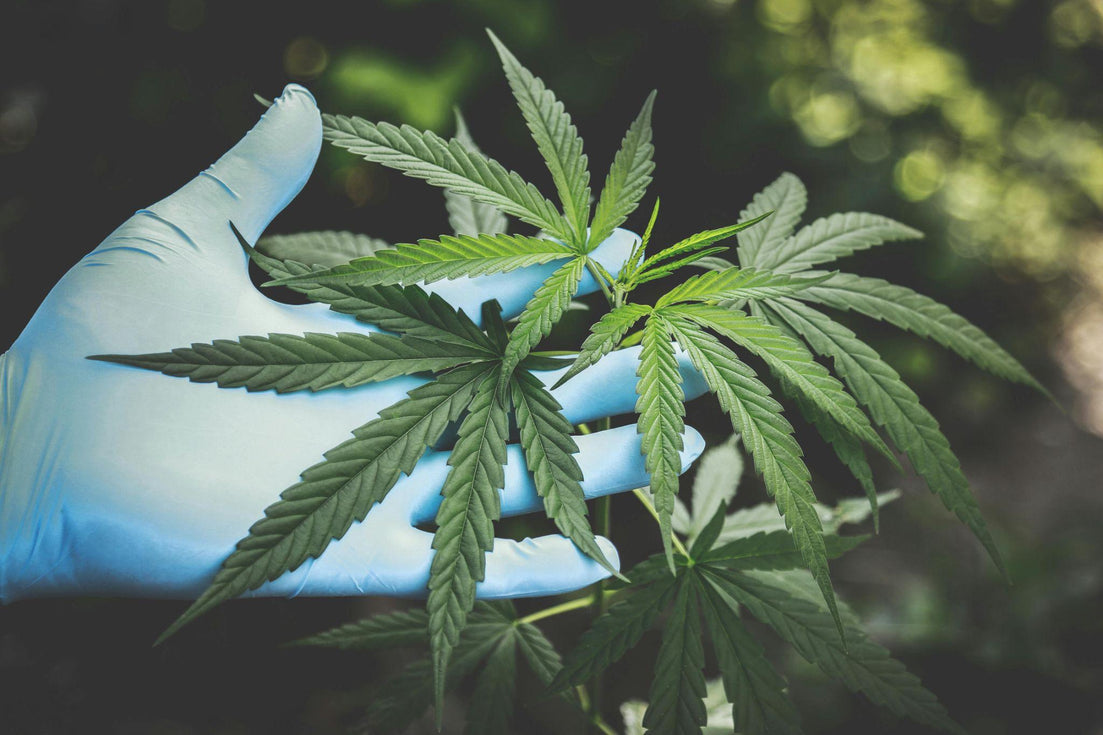Your cart is currently empty.

In recent years, scientific research has shone new light on the unique benefits and medical applications of cannabis, demonstrating how this miraculous plant is able to be used in the treatment of many different health conditions, from physical diseases like cancer and arthritis to mental conditions such as depression and PTSD.
According to some studies and anecdotal evidence, cannabis strains may also be used to treat traumatic brain injuries too, offering aid and relief to those who have suffered head injuries in situations like auto accidents. This guide will take a look at how this works and what benefits cannabis can offer for those dealing with a TBI.
The Basics of Traumatic Brain Injuries
Getting marijuana was once thought to be a taboo substance, but now medical marijuana can be obtained at a local cannabis dispensary. Because of the legalization and decriminalization of cannabis in many US states, more studies are being held on its potential use cases and applications.
Before we take a closer look at how medical marijuana may be used to assist those with traumatic brain injuries, it's important to understand what exactly a TBI is, how it happens, and what sorts of symptoms patients have to deal with.
The term TBI is used to refer to a wide range of cases in which the brain has suffered some sort of damage, usually due to an impact or blow to the head or body. These injuries commonly occur in auto accidents when drivers and passengers are flung forwards or hit their heads on the dashboard or seat in front of them.
TBIs are also common in sports, with many players of physical sports like football and hockey suffering from TBIs on a regular basis as they get tackled or collide with other players. Even something as simple as slipping and falling can cause a TBI too, and statistics show that close to 1 in 3 injury-related deaths involve a TBI, with close to 3 million Americans affected by the issue annually.
A TBI can vary in severity. Some are very mild, involving a light concussion and a mild headache that should fade quite quickly, without any other major symptoms, but others can be much worse, involving more physical and mental symptoms like nausea, vomiting, migraines, blurred vision, depression, seizures, and even cognitive issues too that could lead to loss of memory or loss of basic abilities.
Treating a TBI can be a challenge, and the proper treatment procedure will depend on the situation and symptoms of the patient in question. In some cases, physical and mental rest is all that is needed for a patient to make a recovery. In other cases, medications and therapy of various kinds may be required. Research shows that cannabis strains can play a part in treatment too.
Research on Marijuana Use for TBI
There have been a lot of studies carried out on the medical benefits and applications of marijuana in recent times, with a big focus on two of the most important chemical constituents of the cannabis plant itself: CBD and THC.
Studies have shown that these cannabinoids can be used in the treatment of many medical issues and can help to alleviate a lot of different symptoms, and studies show that they may be beneficial for brain health and injuries too.
One study, carried out in 2011, for example, showed that CBD was able to reduce seizures and brain edema in injured pigs, while a hospital survey conducted in 2014 found that patients who had a TBI and also tested positive for THC at the time had a much lower death rate than the general population of TBI patients.
Another study, carried out in Israel, concluded that an endocannabinoid known as 2-AG was able to help protect the brain against injury and serious damage, helping to reduce inflammation when injuries occur and reducing the risk of cognitive symptoms after an injury.
Other studies suggest that cannabinoids such as THC have neuroprotective properties, helping to protect against brain-related issues and injuries, and there have also been many additional studies into how CBD and THC can play a part in alleviating pain, reducing inflammation, easing stress, and helping patients recover more quickly from injuries.
Why Is Medical Marijuana Effective for Traumatic Brain Injury
The science clearly demonstrates that marijuana can play a part in treating traumatic brain injuries, but what makes it so effective? Well, scientists are still unsure of the precise ways in which cannabis functions to trigger such beneficial effects in the human body, and additional research will be required before any firm conclusions can be made.
However, studies so far have shown that cannabinoids like THC and CBD are able to interact with the human body's own endocannabinoid system (ECS) and connect with ECS receptors in order to generate positive responses and benefits. The ECS is a complex system connected with a lot of bodily processes and sensations, including pain, fatigue, appetite, and more. By working with this system, cannabis can lead to a lot of benefits for TBI patients, including:
- Nausea - Marijuana has been proven on countless occasions to ease the feelings of nausea which can be associated with traumatic brain injuries.
- Pain - Cannabis can also be very effective at soothing sensations of pain, helping patients who may have headaches due to their TBI.
- Mental Health - Cannabinoids like CBD are also effective at easing mental health problems like stress, fear, depression, and anxiety, promoting a more positive and relaxed state of mind.
- Sleep - Cannabis can also be of assistance in helping people drift to sleep and enjoy better quality sleep, and this can be a great aid for TBI patients in helping to speed up their recovery and help them relax.
Bottom Line
Overall, more research is clearly needed to find out just how cannabis works for TBI patients and what more benefits and effects it can have, but the science so far is very encouraging in this field, and cannabis can clearly be considered a supplementary treatment option for those who have suffered head and brain injuries.



